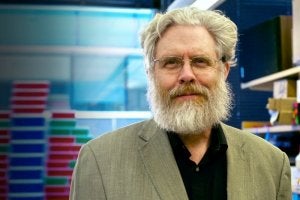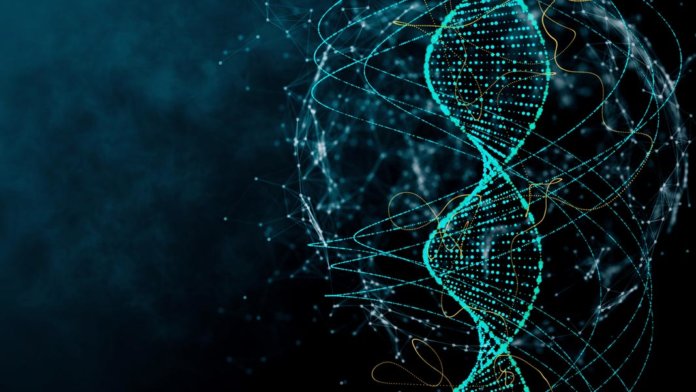You’ve probably heard the acronym NFT over the last couple months. Non-fungible tokens have been all over the news, seeming to become a sensation—one worth a ton of money—almost overnight. Soon a new NFT will hit the market, and it’s a little different than any that came before it, because it contains the entire genetic sequence of a famous scientist—one who’s famous for genomics, specifically.
Who’s George Church?

In case you’re not familiar with George Church, here’s a list of some of his credentials and contributions to the field. He teaches genetics at Harvard Medical School and MIT, leads synthetic biology at Harvard’s Wyss Institute for Biologically Inspired Engineering, is the director of the US Department of Energy Technology Center and of the National Institutes of Health Center of Excellence in Genomic Science. He developed the first direct genomic sequencing method in 1984 and helped initiate the Human Genome Project that same year, and was among the first people to have his whole genome sequenced. Almost 20 years later, in 2005, Church helped launch the Personal Genome Project and became the first person to publicly release his genomic data and medical records for research purposes.
Church also founded San Francisco-based Nebula Genomics, a company that does whole-genome sequencing, and DigiD8, a dating service that matches users based on their genetic data to minimize the odds of passing genetic disorders on to their offspring.
In short, genomics as a field likely wouldn’t have advanced nearly as quickly as it has without Church. For the record, “genetics” is slightly different than “genomics”; the former refers to the study of single genes, including how traits are passed on from one generation to the next. The latter is the study of all of an organism’s genes taken as a whole, and the way they impact the organism.
What’s an NFT?
NFTs, or non-fungible tokens, are unique virtual tags that are stored on a blockchain and tied to digital files, certifying them as being authentic and one-of-a-kind.
Most digital files sold as NFTs can be downloaded by anyone, but the purchaser of the tag or token owns the work. Some recent NFTs that made headlines include Grimes’ “Death of the Old,” which was one of 10 pieces that sold for a total of $6 million; Beeple’s Everydays: the First 5000 Days, which was the first NFT to be offered by a major auction house (Christie’s) and sold for $69.3 million; and LeBron James’ “Cosmic Dunk,” a video clip of the basketball player dunking—among many other NFTs that have traded hands recently.
Selling a Genome
The NFT for Church’s genome will encode the digital location of his genomic data, which is hosted on a decentralized server, and will also include an artistic representation of his genome and likeness.
The project’s web page points out the logic behind its idea to sell a human genome as an NFT, saying “The human genome is a unique encoding of an individual. Each human’s genome is a non-changing representation of their most fundamental and personal data, which is inherently non-fungible.” You can’t argue with that.
“The NFT was not my idea, but hopefully it is a good idea,” Church told The Scientist, “both for the winner of the auction and as an event that increases conversations about the revolution happening in reading and writing DNA.”
It’s hard to say what’s wackier (in terms of feeling like we’re living in a semi-dystopian future): the fact that we can sequence our entire genome for cheap, or that wealthy people are stepping over each other to pay millions for digital “art,” or that highly advanced genetic science, cryptocurrency, and art are now all being rolled into one. It remains to be seen whether Church’s genome will be the first of many auctioned off as an NFT, or if this will be a unique occurrence—but it seems we can’t rule out any possibilities!
The date of the auction hasn’t been set yet, but it will be announced this Sunday, which just happens to be National DNA Day.
Image Credit: Peshkova/Shutterstock.com



